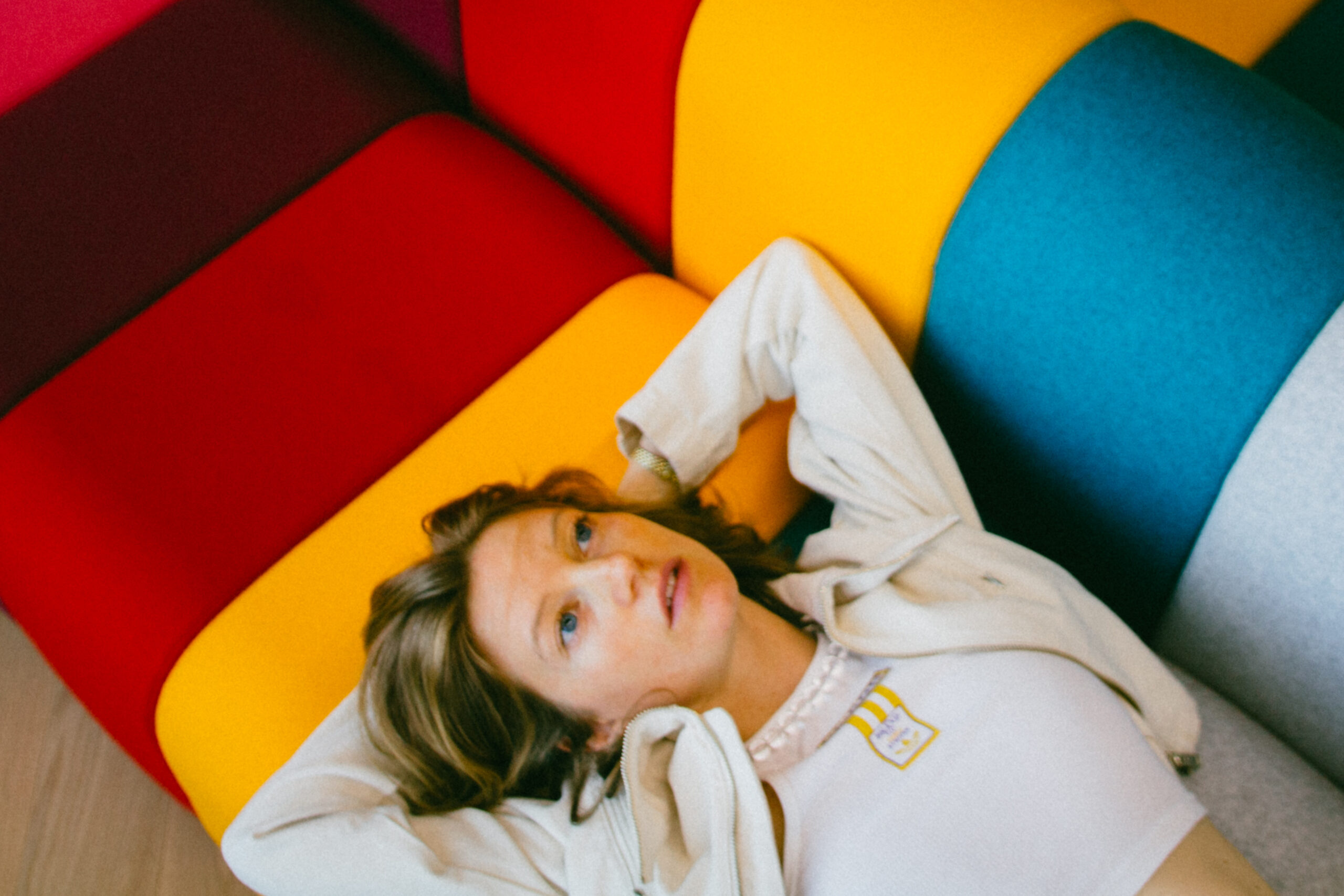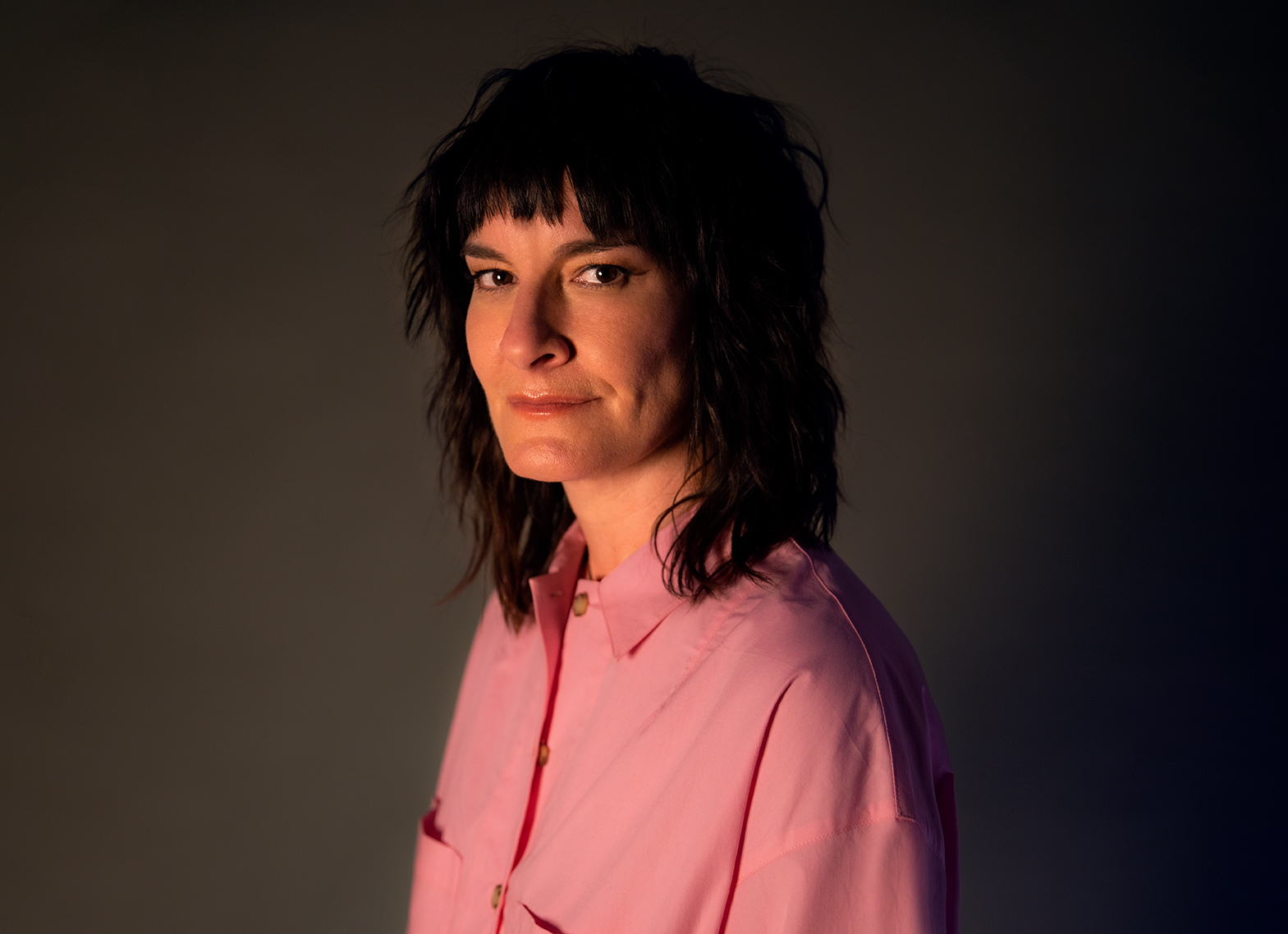Foto-© Marcelle Bradbeer
Jen Cloher hat in ihrer Karriere viel bewegt: Gründung des Kultlabels Milk! Records gemeinsam mit Courtney Barnett, Mentorin für junge Künstler:innen, prägnante Stimme im Australischen Kulturbetrieb, LGBTQ+ Ikone. In ihrer Kunst kehrt sie das Persönliche ins Politische und bleibt doch ganz bei sich. Am Freitag erscheint ihr fünftes Album I Am The River, The River Is Me via Marathon Artists und wieder geht es um das Persönliche im Großen – eingepackt in Rocksongs. Inspiriert von Clohers starken Māori-Wurzeln mütterlicherseits geht es um die Facetten von zuhause, Community und dem Gefühl, ein*e Außenseiter*in zu sein.
Darum geht es auch in unserem Interview. Anfang Februar sprechen wir über Zoom mit einer sehr entspannten Jen Cloher in ihrem Haus in Melbourne. Wir erfahren, dass es wichtig für sie ist, auch in Europa zu touren und warum sie ihre Kunst als einen privilegierten Zugang zu Menschen sieht, den sie nicht verschwenden will. Sie möchte sprechen mit ihren Zuhörer*innen: über das indigene Weltbild, über Zuhause und über Sprache. Wir sprechen über politische Kunst, die Wichtigkeit von Community auch in der Musik und warum sich musikalisch mit ihrem fünften Album ein Kreis schließt.
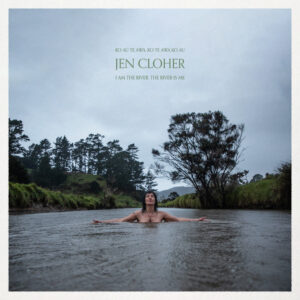 Today is quite eventful. Your new single The Witch has just been released with a very cool music video, European tour dates have been announced, you seem very busy. How are you?
Today is quite eventful. Your new single The Witch has just been released with a very cool music video, European tour dates have been announced, you seem very busy. How are you?
I am very excited, because we get to come to be in your country and get to play some shows in June. It has been four years since I have been in Germany! It has been a big day. It is exciting to see my clip for The Witch going out into the world. A lot of the local scene really enjoyed it, because there is a lot of familiar faces in it– lots of Melbourne based songwriters and performers. I love watching people react.
You have played rather intimate shows in Germany in the past and the venues are quite like that this time as well. It must be so much work to make that possible and to bring a band from Australia to perform in small Berlin clubs. Why is that important to you as I imagine that is not the part where the money comes in?
For me, it is an investment. First and foremost, if I were only to play in Australia, that would be ten shows and that would be the end of the tour. To put so much time into making an album and the video clips and then only to play ten shows feels like a bit of a rip-off. For my last album, I came over three times to the UK and to Europe. I put in some real time with audiences. My hope is that people come again and that eventually somewhere down the track it pays off. But even if it does not, I feel like it is worth the experience.
Let us talk about your new record I Am The River, The River Is Me. The album bio mentions the motives of finding a home and being an eternal misfit. I think many people can relate. Those feelings can make you quiet, but they made you very outspoken. Has it always been this way?
I think a lot of us feel like misfits in the world. It is quite a common experience to feel like you do not fit into the systems or the mainstream ideas of what a life should look like. It is interesting how many relate to it when I express that. The other thing is that I used to be quite lonely in that sort of feeling. Over the years and over sharing that with people and seeing that this is a common experience, I have become more and more confident talking about difficult things. For me, songwriting is a very intimate way of communicating with people. Most of us listen to music with headphones on our way somewhere. Music listening has become about being in your own world with that songwriter. That is quite a privileged place for me to be in. I do not want to waste any time. I want to have a conversation with you. For me, when I listen to a very beautifully written song, that I feel is coming from a place of realness, I feel less alone. That is a beautiful thing to experience as a listener. So, I try to be that as a writer. My only hope is that when people listen to my music they feel less alone.

Do you think about that when you are writing?
I do not have anyone particular in mind, when I am writing a song. I just know that we are all very similar. We have very similar reactions; we are very emotional and sensitive beings. I am just aware of that. We have more in common than we have differences.
I think, it does not only work with emotions. Many themes of the record are Australian and New Zealand based but can be perceived in a universal way. How much do you think that your actual place influences your work?
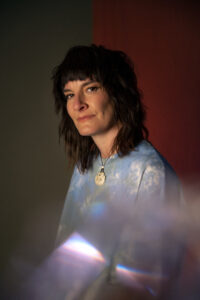 I think that a sense of place is very important. Particularly when you look at the history of Australia. It was only colonized 230 years ago. Before that time, the oldest living culture in the world had been here for more than 65,000 years – an extraordinary culture that unfortunately was brutally displaced. On this album, more so than on the other albums, I wanted to very consciously situate myself on the lands of Aboriginal and Torres Strait Islander people. The importance there is that in my own line, on my mother’s side, are the indigenous people of Aotearoa, otherwise known as New Zealand. The river that you see on the album cover is the river that my mother and my grandmother and my great-mother – they go back 700 years – bathed in, watered their gardens from, sourced their food from. That title I am the River, the River is Me has multiple meanings. That sense of “I come through a line”, there is a river of blood literally that I come through. It is also a Māori – which are the indigenous people of Aotearoa – proverb called “ko au te awa, ko te awa ko au”. I think it really encapsules the indigenous worldview, which is that we are part of the earth, the water, and the skies. We are not separate from it. What we are experiencing right now globally is the result of believing that we are. What I am really having a conversation with the listener about on this album is that we are very important. Humans are here to take care; we have just forgotten our role.
I think that a sense of place is very important. Particularly when you look at the history of Australia. It was only colonized 230 years ago. Before that time, the oldest living culture in the world had been here for more than 65,000 years – an extraordinary culture that unfortunately was brutally displaced. On this album, more so than on the other albums, I wanted to very consciously situate myself on the lands of Aboriginal and Torres Strait Islander people. The importance there is that in my own line, on my mother’s side, are the indigenous people of Aotearoa, otherwise known as New Zealand. The river that you see on the album cover is the river that my mother and my grandmother and my great-mother – they go back 700 years – bathed in, watered their gardens from, sourced their food from. That title I am the River, the River is Me has multiple meanings. That sense of “I come through a line”, there is a river of blood literally that I come through. It is also a Māori – which are the indigenous people of Aotearoa – proverb called “ko au te awa, ko te awa ko au”. I think it really encapsules the indigenous worldview, which is that we are part of the earth, the water, and the skies. We are not separate from it. What we are experiencing right now globally is the result of believing that we are. What I am really having a conversation with the listener about on this album is that we are very important. Humans are here to take care; we have just forgotten our role.
Some of the song titles are in Māori. Language as in translations and concepts of meanings seemed to have a big influence in your work on this album. Can you tell us more about why that was important to you?
Most English-speaking nations are monolingual. In Europe for example, people like yourself can speak two or three languages and that is not something people are blown away by. It is kind of embarrassing how monolingual English-speaking nations are. Really my first language is Te Reo Māori, which is the Māori language. But I grew up away from my land. I was born and raised in Australia. Like the indigenous people of Australia, the indigenous people of New Zealand were also displaced from their lands and separated from their practiced culture, religion, and language. In fact, my mother’s generation were beaten at school if they were to speak Māori. There is a big disconnect. What I tried started to do very very slowly is to learn the language and to some extent speak the language and sing the language. There are people, who are Māori and write whole albums in Māori and have been releasing their whole lives. It is not like I am doing anything new [laughs], but for me it is a risk. It is a risk to speak a language that you are not even conversational in. It is scary to learn a new language and speaking it. Particularly, when it is so much a part of your cultural identity. I just wanted to encourage people to not be afraid.

How have the reactions been?
The wonderful thing about Māori is that they are very encouraging. There has been a huge movement in Aotearoa of language revival, especially in the last forty years, bringing it into kindergartens and primary schools, so that they grow up speaking it. And now those kids are in their 20s and 30s and they are fluent and confident speakers. There is a real encouragement and I have not ever felt any kind of shade about it.
Your songs are encouraging as well. They are political, personal, and angry but in an energizing way. They are rather an invitation to do something than descriptive.
Art has always been political. Songwriting and writing have always been political. Not everyone wants to do that in their work and that is fine. There is music for all different sorts of reasons. Also bearing in mind that if you were an African American person on a stage singing blues or soul in the 1930s, that was political. It does not have to be political what you are singing about, just existing and creating work, particularly if you are from a marginalized or minority group, can be a really big statement. We live in such a complex and interesting world that for me it would feel like a missed opportunity not to speak about it. Nina Simone said that the artist’s responsibility is to reflect the times in which we live. That really sums it up to me. We have to be talking about the real stuff. I need to be doing that in order to feel relevant and alive. It enlightens me. If I just wrote the same album again and again and again, just singing about my broken heart, it gets a bit boring.
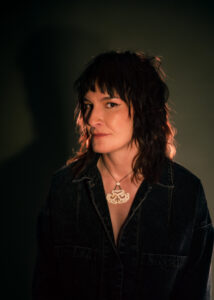 Speaking of new perspectives, let us talk about the sound of the new record. The Wild for example: It is very powerful but quite different from what we were used to hear from you in the last couple of years. Can you tell us more about your approach? Did you start with a vision or was that a development?
Speaking of new perspectives, let us talk about the sound of the new record. The Wild for example: It is very powerful but quite different from what we were used to hear from you in the last couple of years. Can you tell us more about your approach? Did you start with a vision or was that a development?
I wish I was the kind of songwriter that could go, “I am going to write this kind of song”. But I am not. I usually sit down with an acoustic guitar, and I just play until something arrives that sounds like a song, and I shape it from there. All the songs on the album are a response to me sitting down and being open to what comes along. That is all I have. If people go back to my first and second album, they will feel like I have come full circle and brought elements of those records plus my third and fourth record into this fith album. It feels like I have brought the fullness of all the things I have done in the past. This record is probably the most considered, arranged, and sonically detailed. There is a lot of depth. I think it is a record that genuinely does grow on you.
There are a lot of layers to discover with each spin.
Yes, and little surprises. Like The Wild, when Kylie Auldist comes in with that big Pink-Floydesque vocal solo. First you are like, “Is that Jen? No…”. I just felt that since this song is really talking about our responsibly as caretakers, what if mother earth had a solo? It was such a weird idea, but I think it works.
Another big theme of the record is community as a home. Is that a feature of the Australian music scene or Melbourne music scene per se? From the outside it seems like everyone is in each other’s videos, is playing in each other’s bands, etc. Did it take work to come this far or was it a natural process?
As a musician you have to have a community to thrive and prosper. You have got to play with other people. That is really what it is all about. I have always had bands that stayed with me. My first band stayed with me for seven years, we made two albums. My second band was Courtney [Barnett], Bones [Sloane] from Courtney’s band and Jen Sholakis, who has drummed on all my records. We were together for seven years and we made two albums, so… [laughs] I just realized that if you are going to survive and be able to financially make and release music, you need to do that with other people: with a community around you to support each other emotionally, financially, artistically. Audiences really love to get behind communities of artists and I think Milk! Records for example was a great moment in the music scene here in Melbourne. I would sit in the center and watch what it would look like to build a community around a label as opposed to just an artist or a band. For me, I cannot imagine ever making music without my community around me. And I love it. I love the idea of abundance and that everyone can have success and it does not just have to be a little thin line of the successful people. Just to be here, 20 years into a career, still making music, still touring, still having people interested enough to get on zoom and talk to me is proof that community works.
Thank you for the interview!









